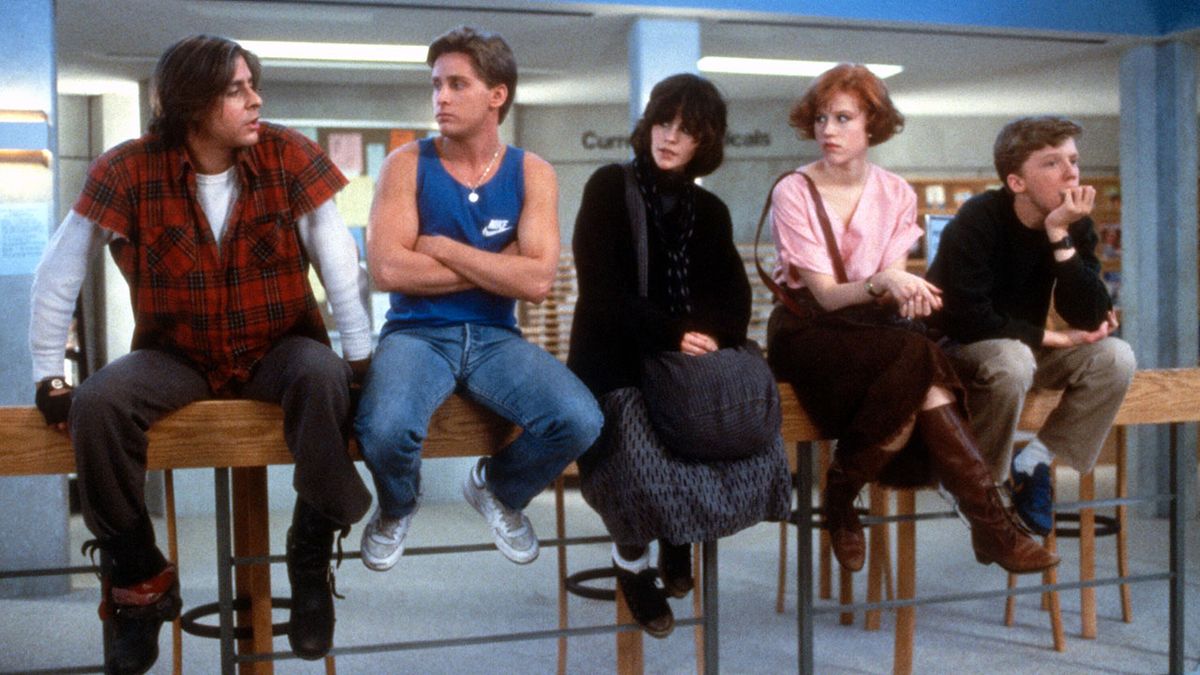Looking back on the history of film, especially the best movies of the 1980s, there’s a legacy of films that could now be seen as rather problematic. And in making this list of such titles, our intent is not to dogpile on films like Revenge of the Nerds, which seem to frequently pop up. If anything, consider the following rundown as a catalog of movies that could possibly still be enjoyed, even with the following caveats in mind.
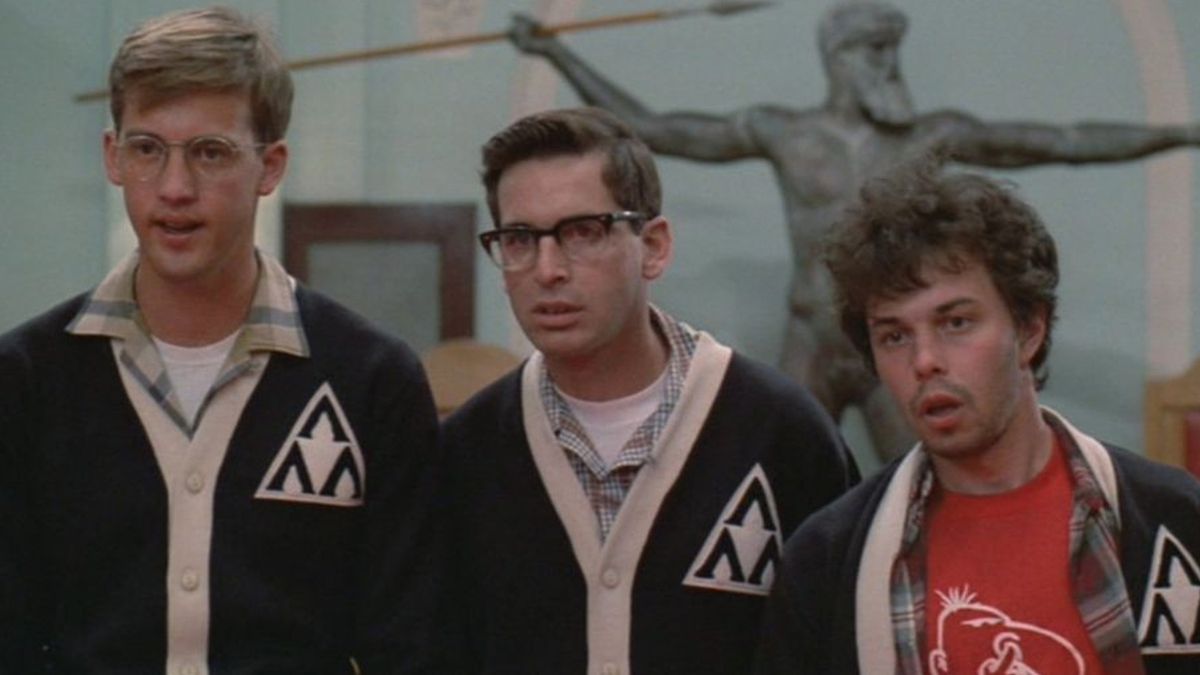
Revenge of the Nerds
Rooting for the underdog is easy, even in a case like Revenge of the Nerds, which inappropriately depicts stereotypes of sexuality. Even worse is the fact that the character of Betty Childs (Julia Montgomery) not only has scandalous pictures distributed without consent, but she’s also tricked into intimacy with the lead hero nerd Lewis (Robert Carradine). It’s probably for the best that the 2007 remake was canceled.
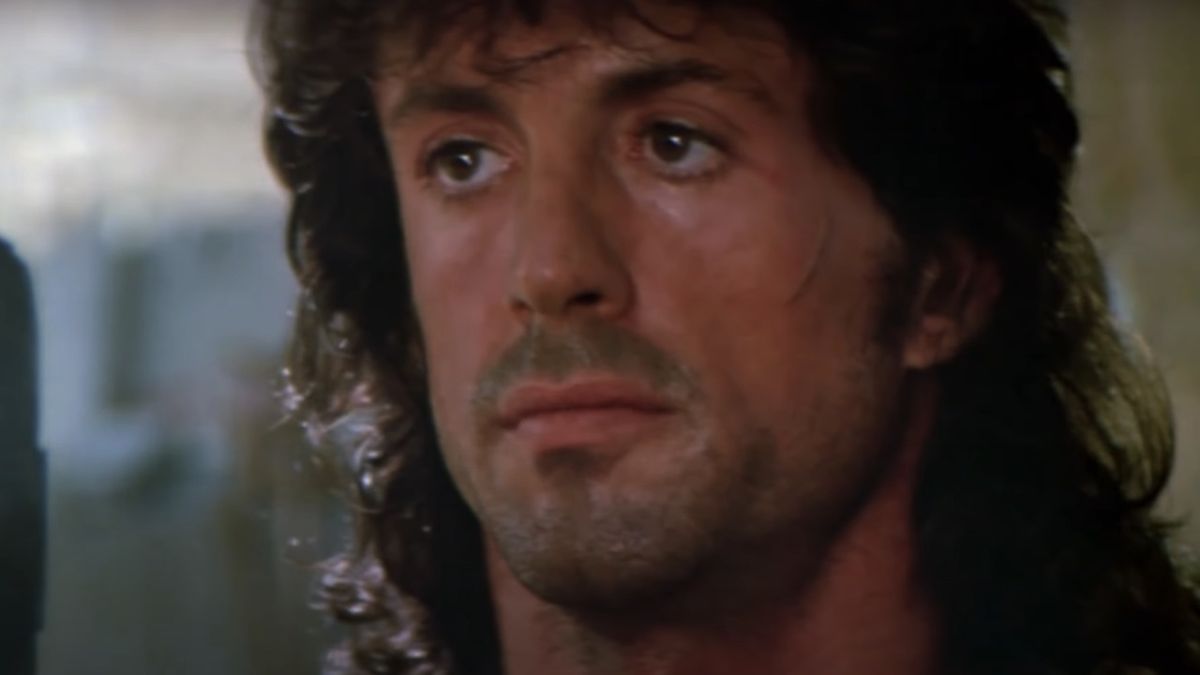
Rambo III
1988 was a very different time in geopolitics, as anyone could see through the presence of several action movies pairing heroes like John Rambo (Sylvester Stallone) with the freedom fighters of the Mujahideen. While the viral post about Rambo III dedicating the film to their efforts isn’t real, the fact that this anti-Soviet occupation force eventually helped form The Taliban is.
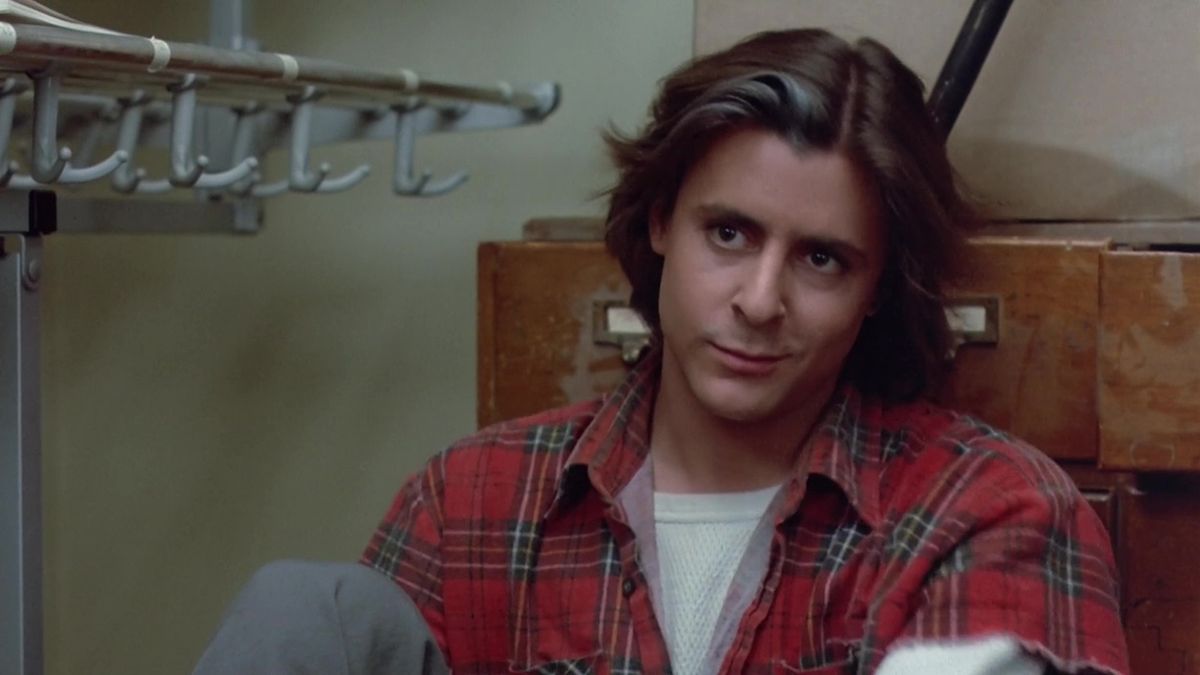
The Breakfast Club
This John Hughes comedy landmark almost didn’t qualify for the list of problematic ‘80s favorites. That was until we took a closer look and remembered that scene where Bender (Judd Nelson) took advantage of a situation in which he could look up Claire’s skirt (Molly Ringwald). There are still some beautiful life lessons in this absolute classic, but that moment signified a pattern of behavior from The Breakfast Club’s bad boy which is unacceptable.
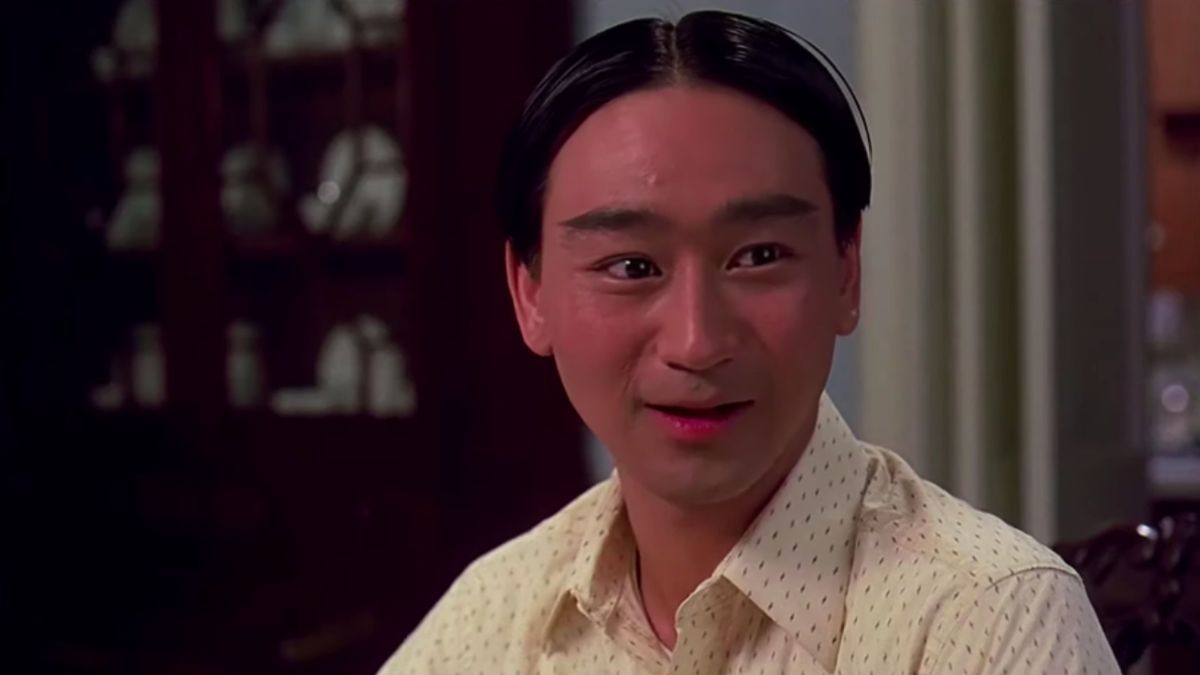
Sixteen Candles
You can take your pick over what piece of Sixteen Candles’ classic comedy shenanigans is the most problematic, as two glaring options have persistently been discussed in modern times. With either the harmful stereotypes embodied by the entire character of Long Duk Dong (Gedde Watanabe) or Ted’s (Anthony Michael-Hall) various escapades trying to convince his friends he’s hooked up with a girl, you could probably start an argument just by mentioning this movie’s name in passing.
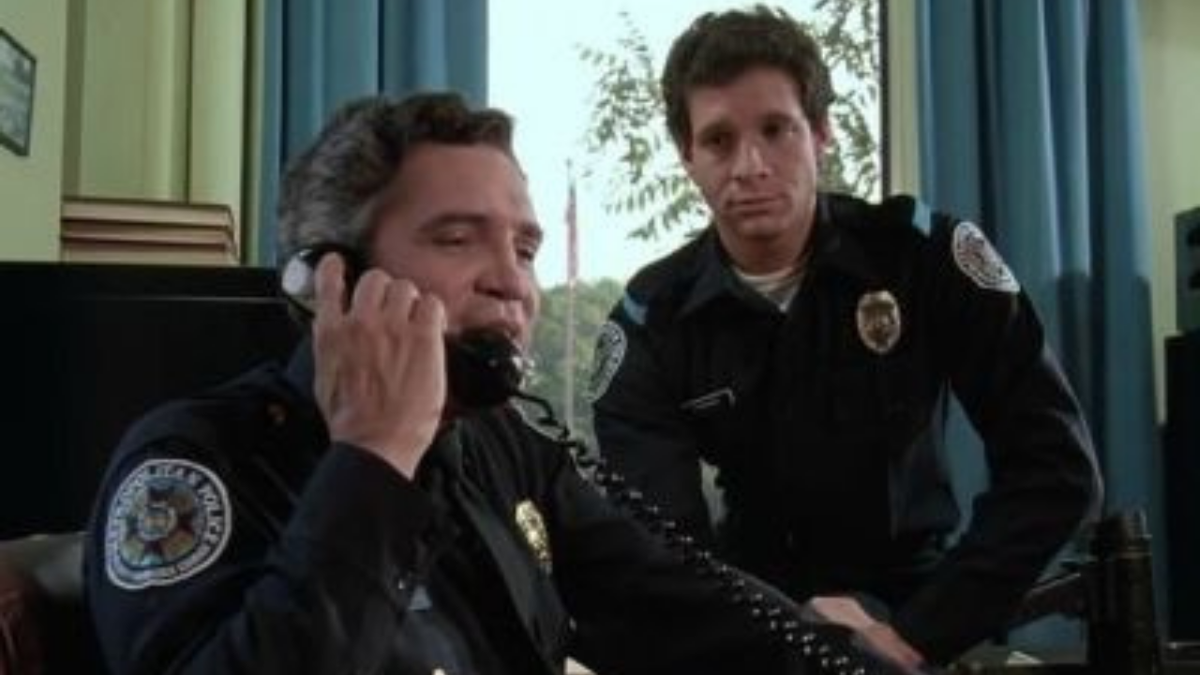
Police Academy
Earlier entries in the Police Academy series tended to be a lot raunchier than their eventual successors. But one joke that continued to play into the trope of “gay panic” humor was the running gag of members of the force winding up at the Blue Oyster Bar. Full of leather-clad men who knew how to dance, the joke eventually softened by the time Police Academy 4: Citizens on Patrol was released.
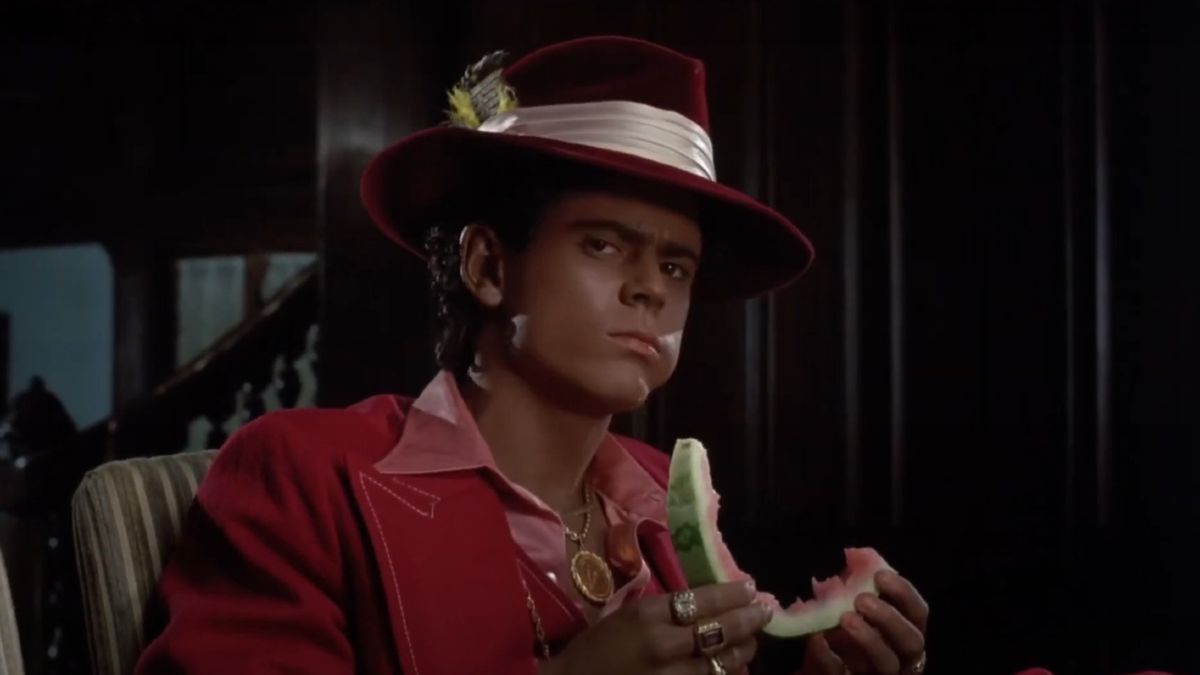
Soul Man
C. Thomas Howell’s Soul Man lead is about to go to Harvard…but needs a scholarship after life events leave him without his college fund. This leads him to come up with the idea of taking too many tanning pills, so he can masquerade as a Black man. If the racial politics weren’t enough to make you question the eventually good-natured film, then the pill-popping probably would do it.
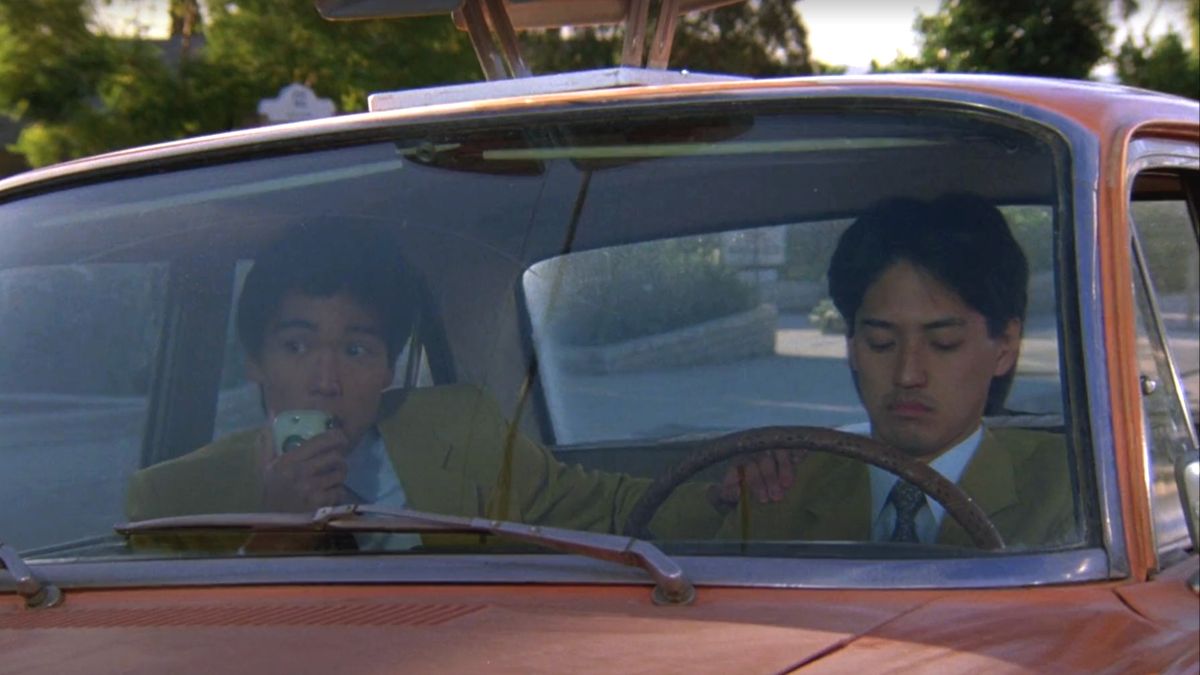
Better Off Dead
Yee Sook Ree (Yuji Okumoto) and his brother Chen Ree (Brian Imada) provide the John Cusack classic Better Off Dead with a scene that some contemporary fans have questioned. With Chen unable to speak English, and Yee only speaking in an imitation of Howard Cosell, the joke doesn’t seem outwardly racist. However an actual bit of upset comes from the fact that Okumoto revealed to EW that he was dubbed over in the role by impressionist Rich Little.
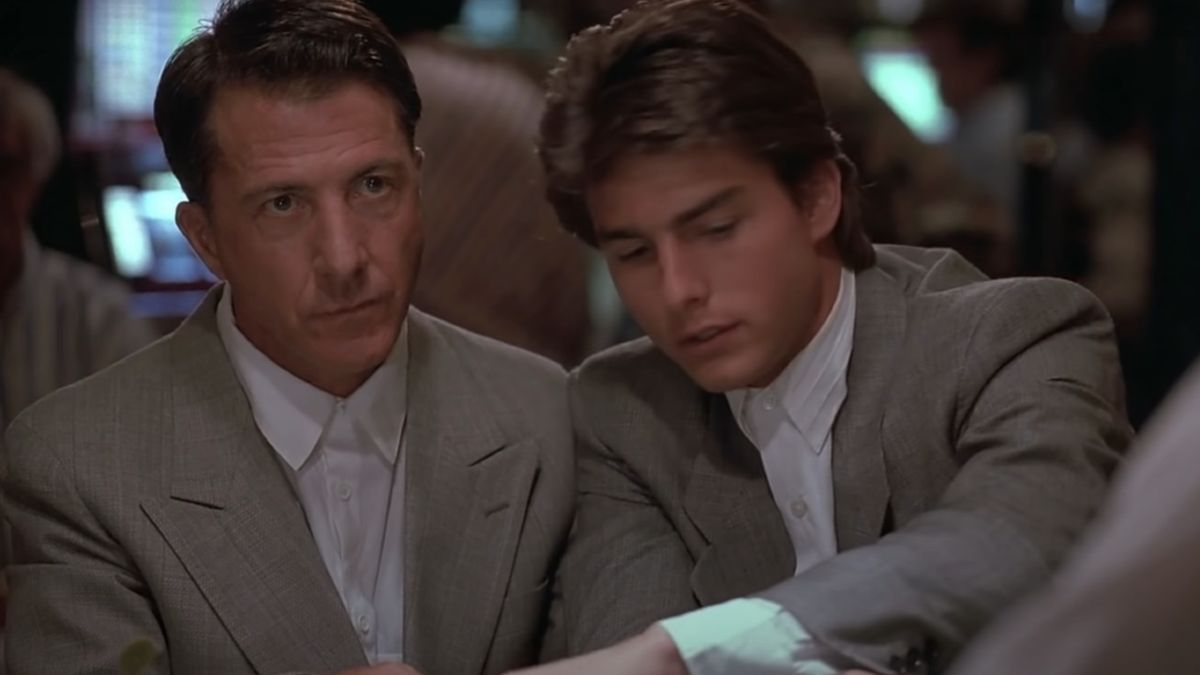
Rain Man
Back in the day, Rain Man was a huge hit at the box office, as well as becoming the best picture winner at the 61st Academy Awards. However, from a more current lens, Dustin Hoffman’s portrayal of a neurodivergent math whiz doesn’t exactly pass muster. It also doesn’t help that the movie’s title has also found itself used as derogatory slang for neurodivergence.
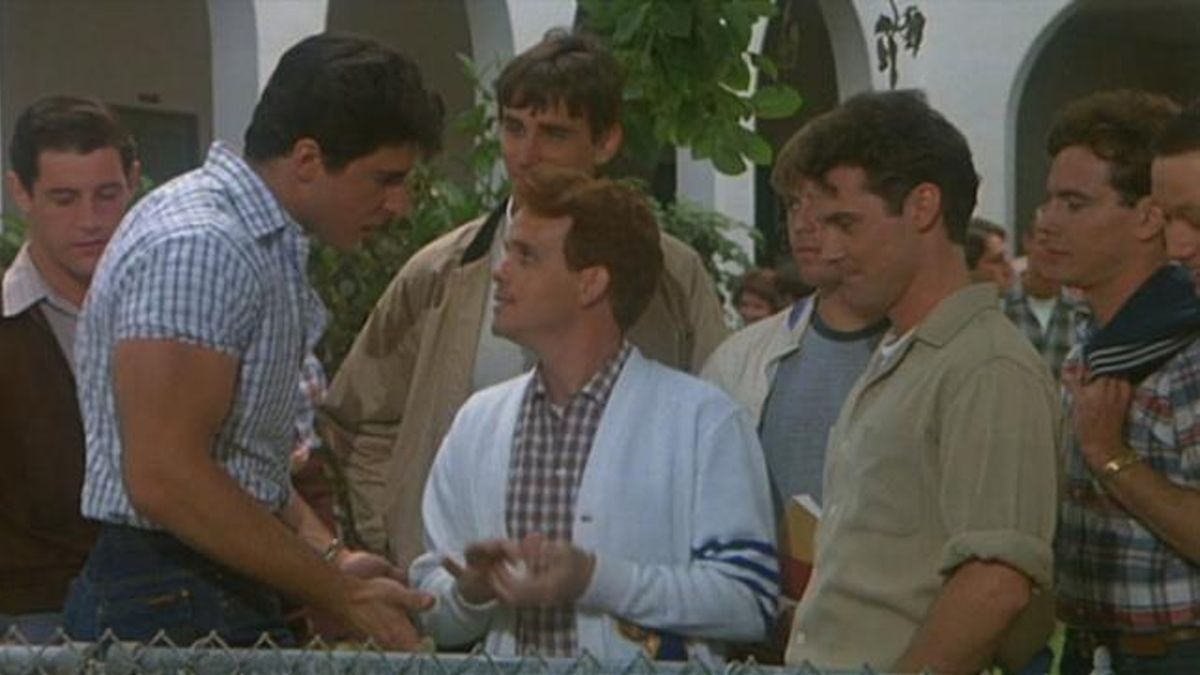
Porky’s
There are definitely hilarious consequences when it comes to the main act of peeping tomfoolery that makes Porky’s mischievous centerpiece. But out of context, and perhaps even in context, a group of boys exposing themselves through a hole in the girl’s shower doesn’t play with some modern audiences. Not even if it gives us the infamously funny “wanted poster’ scene.
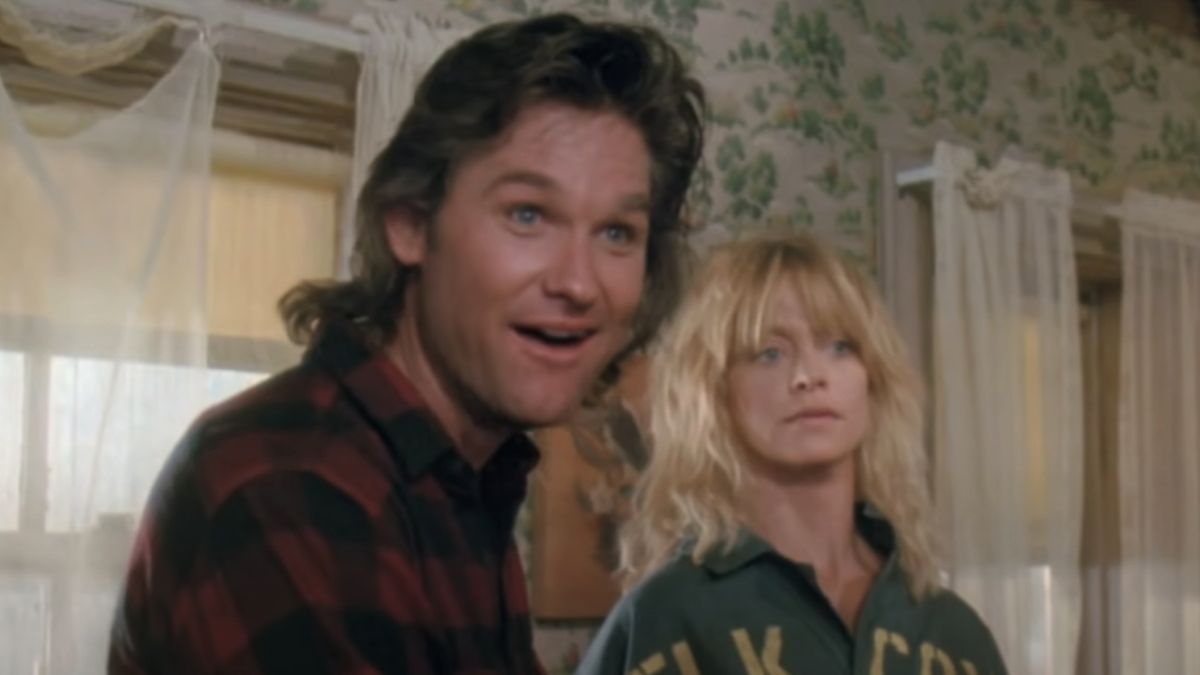
Overboard
Kurt Russell and Goldie Hawn’s ‘80s classic Overboard is a lighthearted rom-com that many still call one of their favorites. However, the main push of the story revolves around the wealthy amnesiac Joanna (Hawn) depending on love interest/kind-hearted dad Dean (Russell) to remind her of who she is. Even with the roles reversed in the Anna Farris/Eugenio Derbez 2018 remake, it’s a plotline that hasn’t aged well.
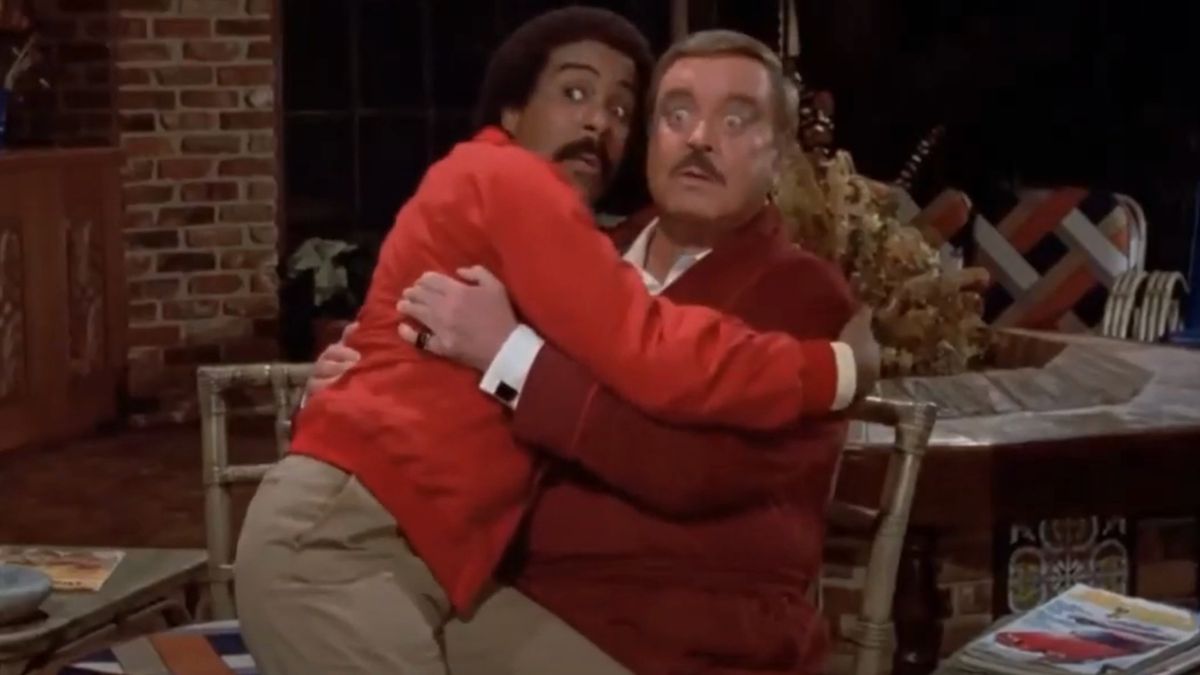
The Toy
How could a movie like The Toy miss when pairing the likes of Richard Pryor and Jackie Gleeson? Well, for starters, critics didn’t think the film was all that funny. But the greater sin is the fact that the story of a millionaire (Gleeson) practically “buying” a down-on-his-luck Black man (Pryor) to be his son’s live-in friend is problematic on several levels.
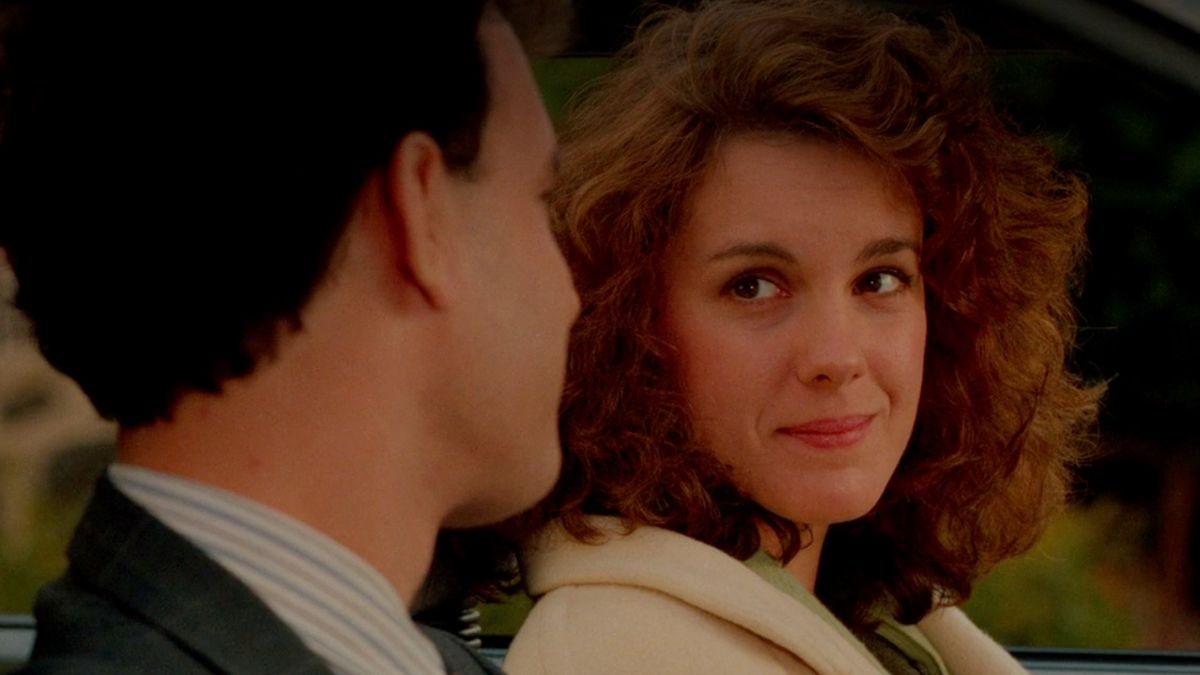
Big
In between moments of piano playing at FAO Schwartz and singing schoolyard songs that even Hannah Wadddingham still remembers, Big has a problem on the same scale as its title. With the magically grown Josh Baskins (Tom Hanks) being engaged in a love affair with his co-worker (Elizabeth Perkins), the actual age gap between these characters kind of smacks you in the face at the end…much like one of the ‘90s kid classics that actually suck, Blank Check.
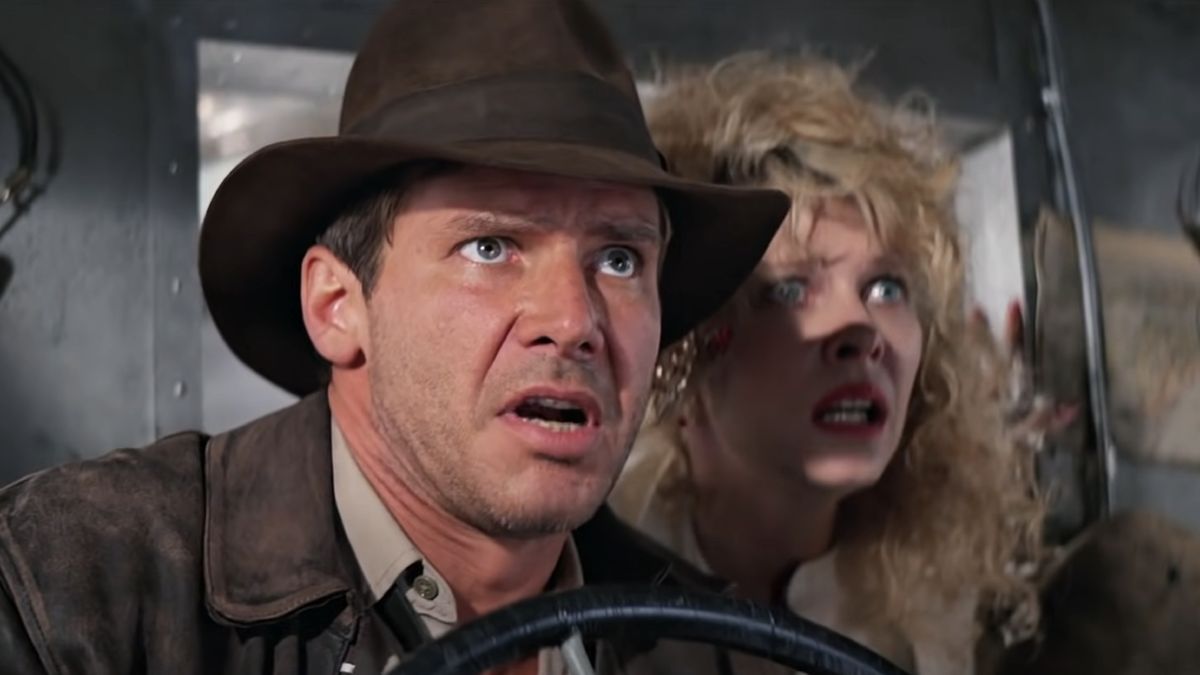
Indiana Jones And The Temple Of Doom
In a franchise like that of the Indiana Jones movies, there’s always that one entry that can be called out as a problem. In the case of 1984’s Temple of Doom, the racist undercurrents throughout the humor and action of the prequel to Raiders of the Lost Ark is a huge step backwards. It’s also not very funny unless you consider fueling inaccurate stereotypes involving the consumption of chilled monkey brains hilarious.
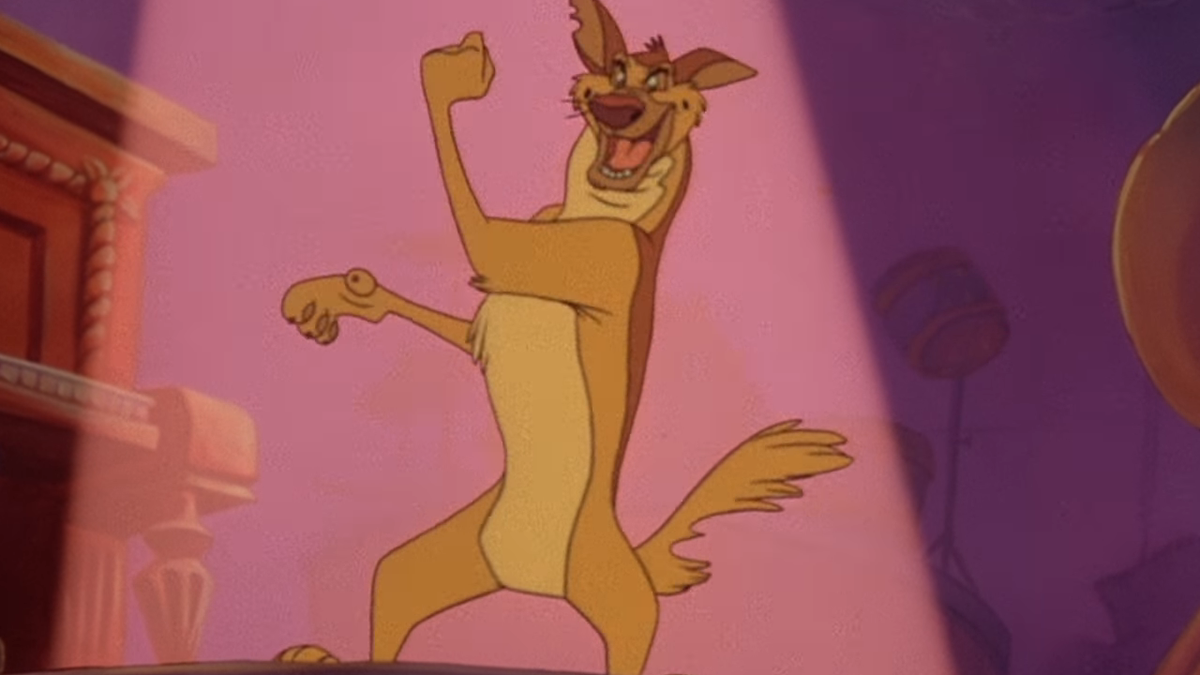
All Dogs Go To Heaven
The controversy around All Dogs Go To Heaven is one that is leveled against pretty much every animated film Don Bluth has ever created. That’s right folks, this animated movie is one that’s been deemed too dark for kids. And if that wasn’t bad enough, the character of King Gator (Ken Page) has been singled out as potentially insensitive as well.
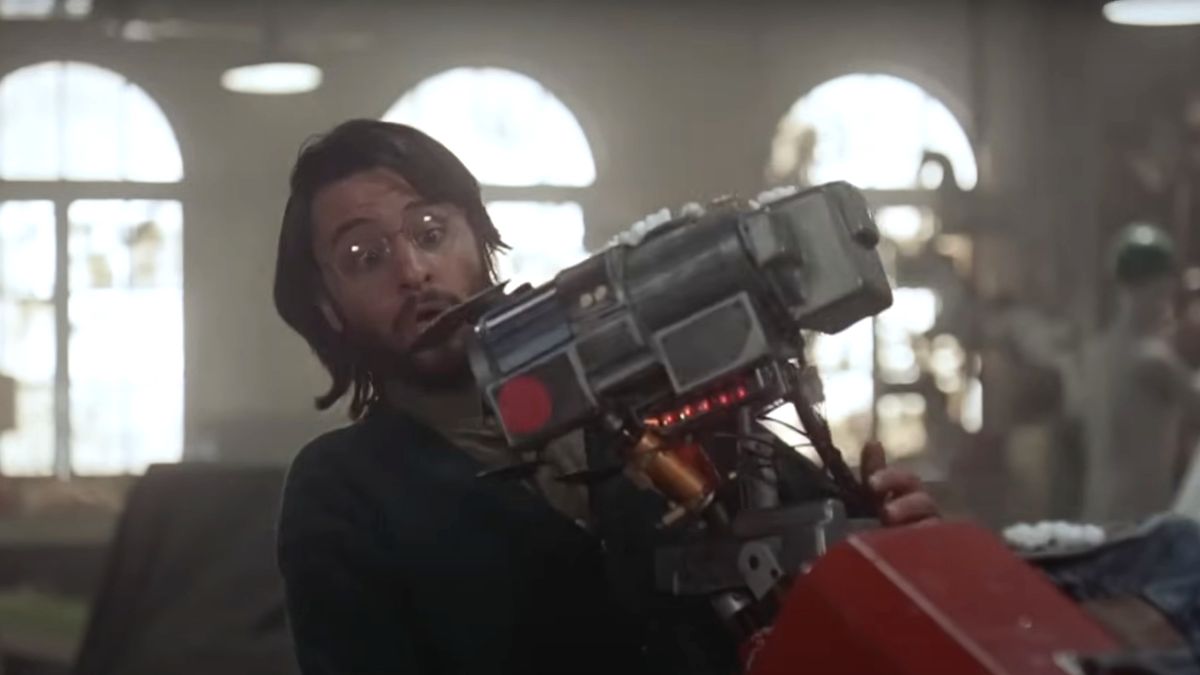
Short Circuit 2
Actor Fisher Stevens ultimately came to regret his role in the Short Circuit movies and rightfully so. Playing the role of lovable assistant Ben Jabituya, Stevens engaged in brownface to play this character of Indian ancestry not once, but twice! Needless to say, Ben was going to be cast with a more ethnically appropriate lead in Short Circuit’s proposed reboot, directly responding to that questionable moment in movie history.
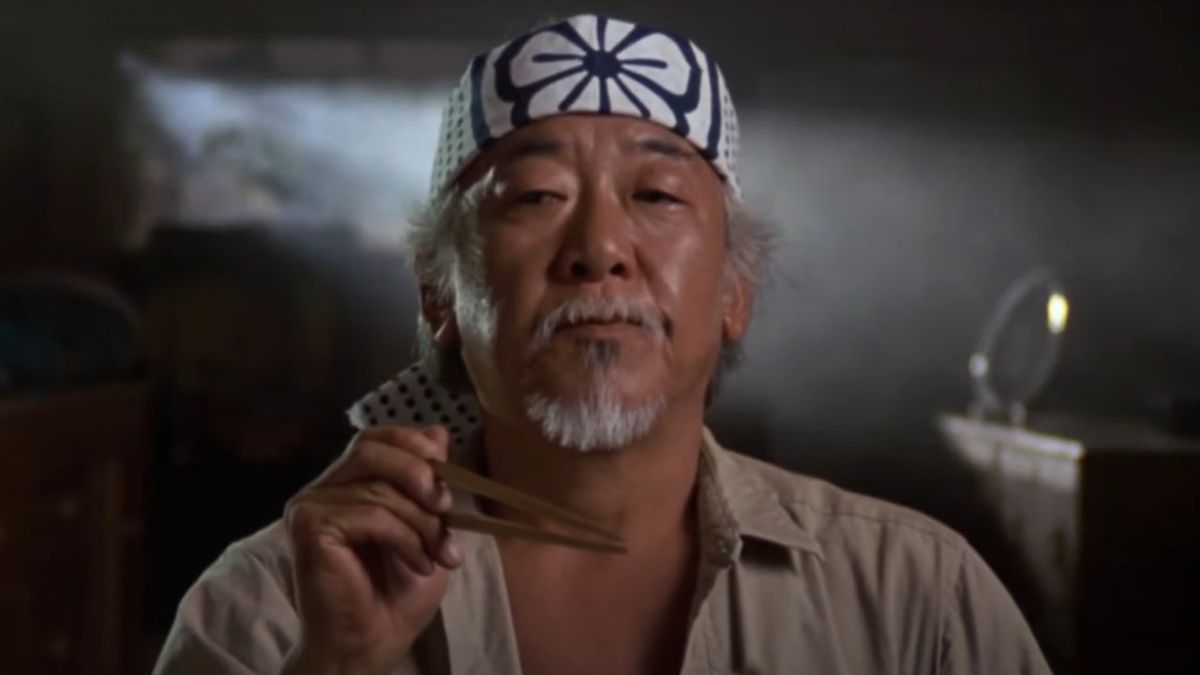
The Karate Kid
Some people might question if Daniel Larusso (Ralph Macchio) was really the hero of The Karate Kid. Others wonder if Mr. Miyagi’s gentle wisdom (Pat Morita) was a spin on the “Magical Asian” trope. No matter how you side on this matter, we can probably agree that the Netflix streaming hit Cobra Kai has only improved the legacy of this franchise, sometimes by facing those questions head-on.
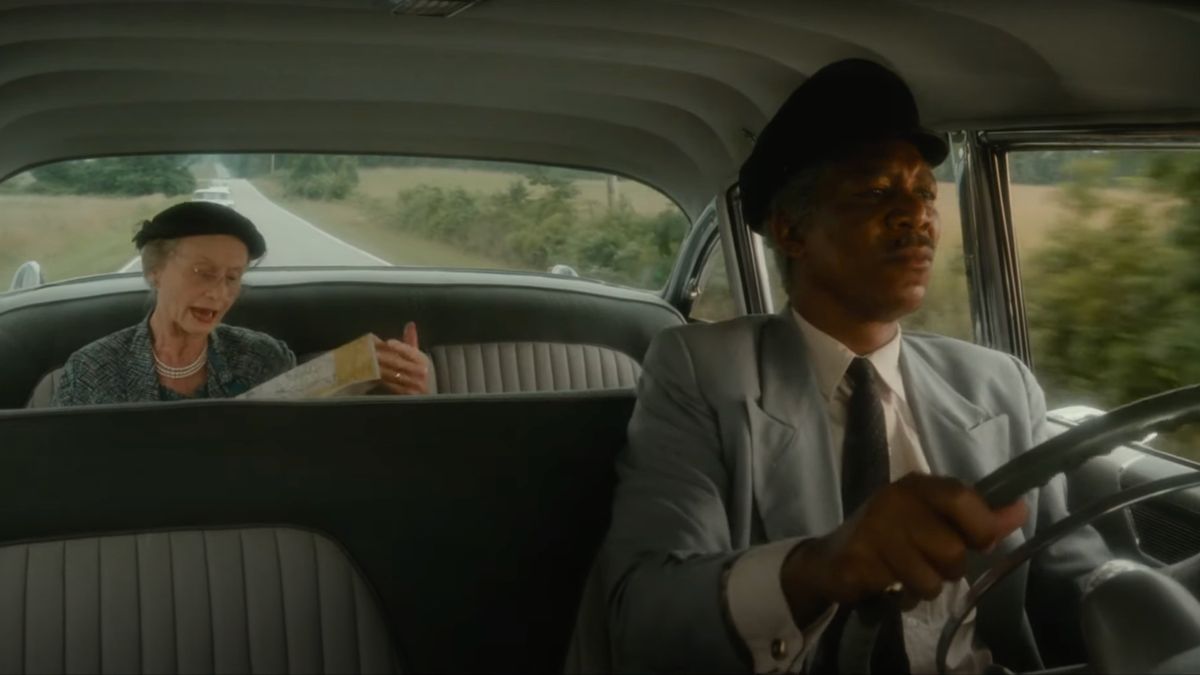
Driving Miss Daisy
In any other year Driving Miss Daisy would have merely been seen as problematic for the fact that it’s a decidedly softer tale about overcoming racism. But as the Morgan Freeman/Jessica Tandy-led film was crowned for Best Picture in competition against Spike Lee’s Do The Right Thing, the criticisms only grew louder, and more enduring.
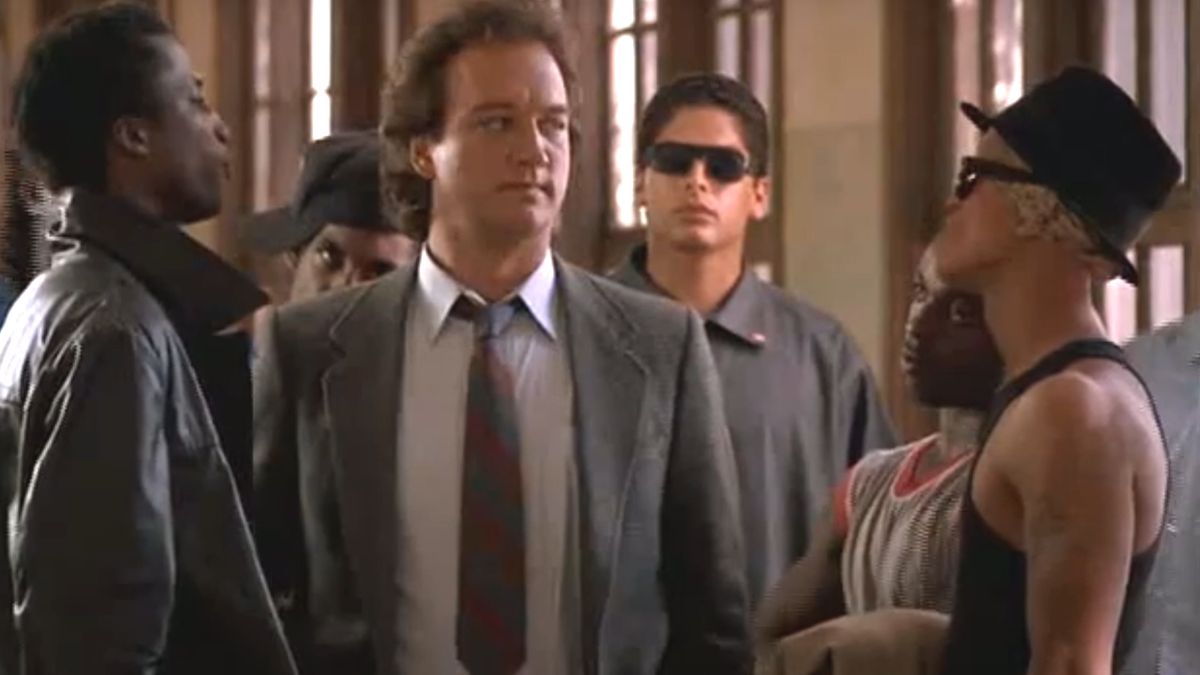
The Principal
Stop us if you’ve heard this one: a tough-as-nails principal (Jim Belushi) cleans up a school the entire district looks down on through violence and intimidation. If you thought you were getting Lean On Me in the first half, I apologize as the second half of that synopsis is what separates The Principal from its loftier counterpart. Who’d have thought a flick where a school’s head disciplinarian beats a student in hand-to-hand combat would have aged so poorly?
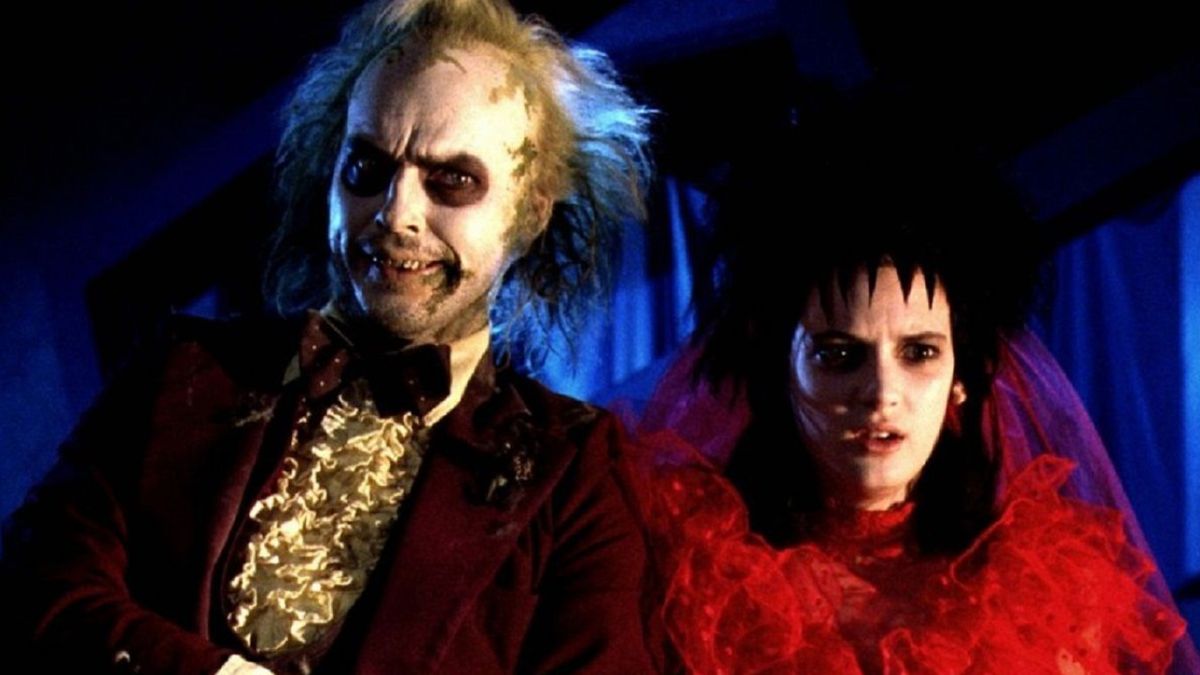
Beetlejuice
Can you love Beetlejuice warts and all? Of course you can, because Tim Burton’s legendary horror-comedy is a fun ride. However, we all seem to be on the same page about just how problematic the 1988 original’s story is, considering the B-Man (Michael Keaton) was trying to marry the obviously underage Lydia (Winona Ryder). And somehow, these two became the best of friends for four seasons of an animated series after all that unpleasantness went down.
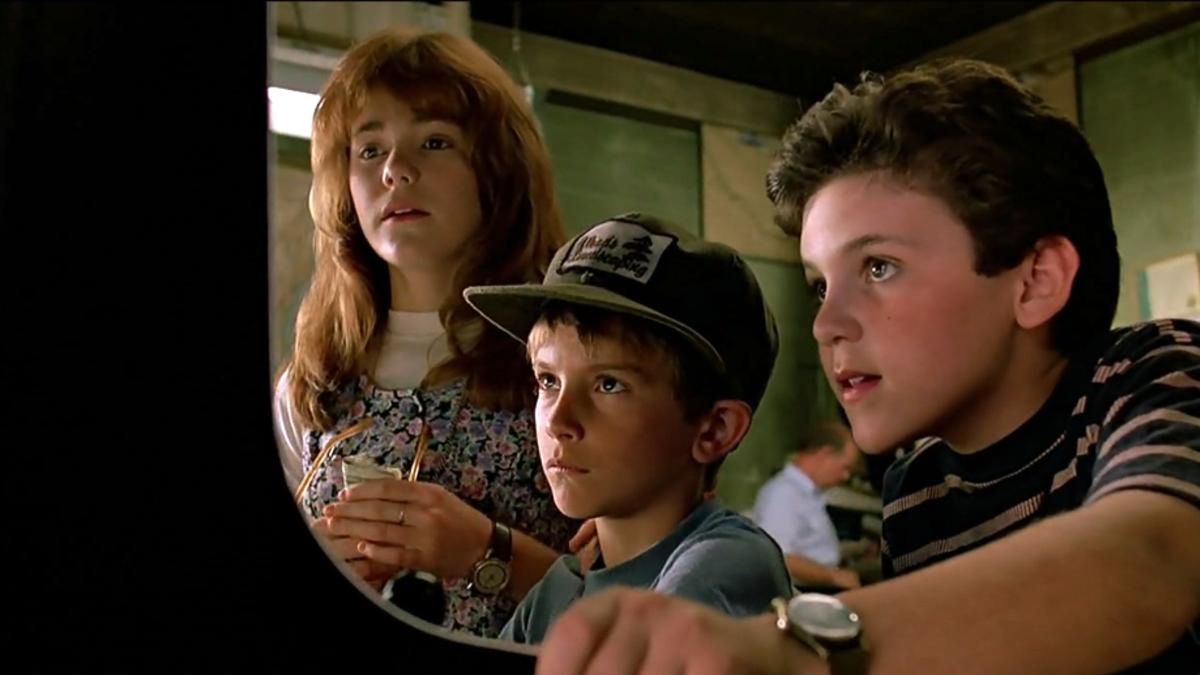
The Wizard
While the titular character in The Wizard isn’t outright diagnosed on the Autism spectrum, the wider reading of this 1989 adventure sees young Jimmy (Luke Edwards) coded as such a character. Apparently caused by a death in the family that later ended his parents’ marriage, Jimmy seemed to have two choices: run away from home or be sent to an institution. Sorry to say it, but this is an ‘80s childhood classic that sucked.
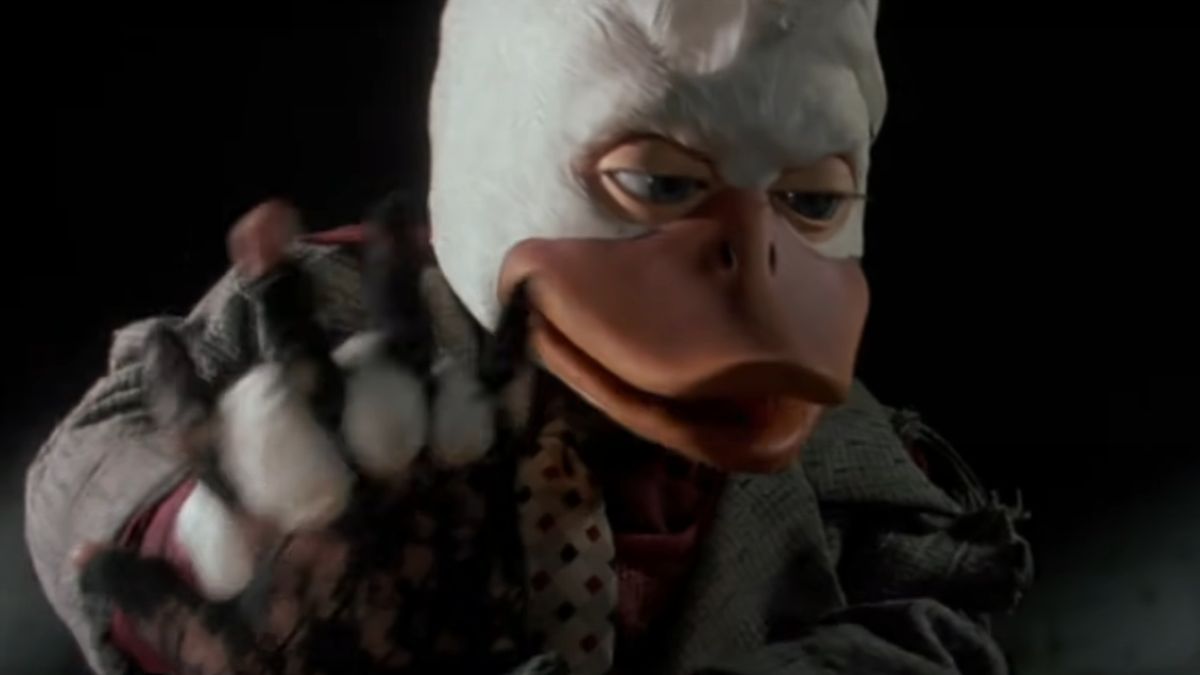
Howard The Duck
Some out there might still defend Howard the Duck as a quirky and entertaining romp with a pre-MCU variant of Marvel’s beloved deep-cut character. If that defense doesn’t touch upon the obvious trouble spots of unexpected duck nudity, and the implied intimacy between intergalactic duck Howard (Ed Gale/Jordan Prentice/Chip Zien) and would-be rockstar Beverly (Lea Thompson), then feel free to start up that conversation yourself!
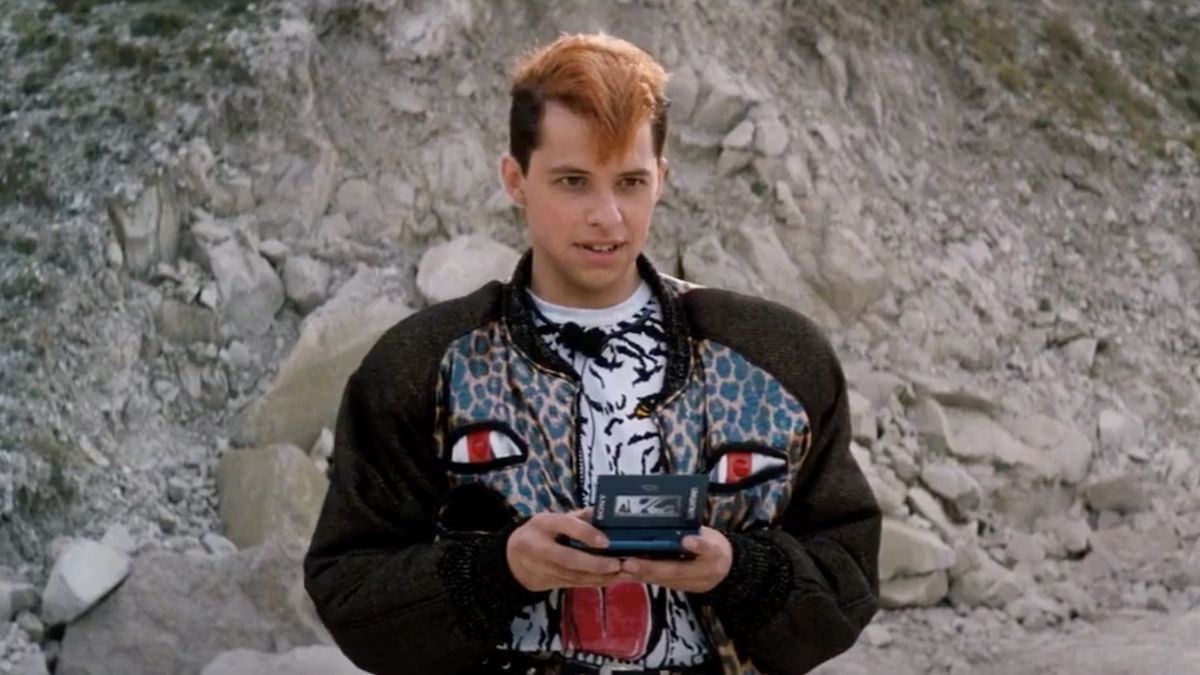
Superman IV: The Quest For Peace
Sure, Superman IV: The Quest For Peace seems problematic for suggesting that good old Supes (Christopher Reeve) can solve the nuclear arms race in a heartbeat. But if there’s anything that has fans, and even Jon Cryer sharing negative Superman IV feelings, it’s the fact that the final classic installment was handled by Cannon Films in a way that showed they had no idea how to make this film.
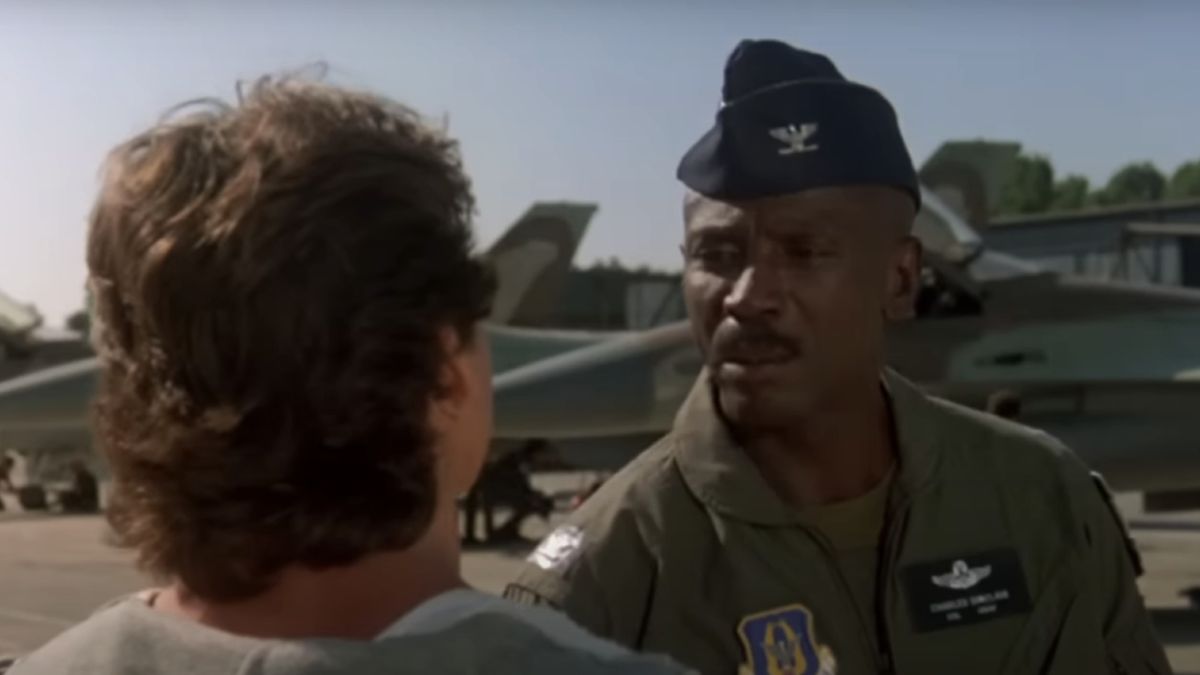
Iron Eagle
Just as the Rambo sequels thought one man could somehow re-fight the Vietnam War with the Mujahideen, Iron Eagle’s attitude towards international relations is another problematic fantasy. Apparently all Doug Masters (Jason Gedrick) has to do to save his fighter pilot dad from imprisonment in a foreign nation is to take a crash course in aviation from Louis Gossett Jr., and steal some government property with the right intentions. And trust us, the sequels that follow aren’t any more enlightened.
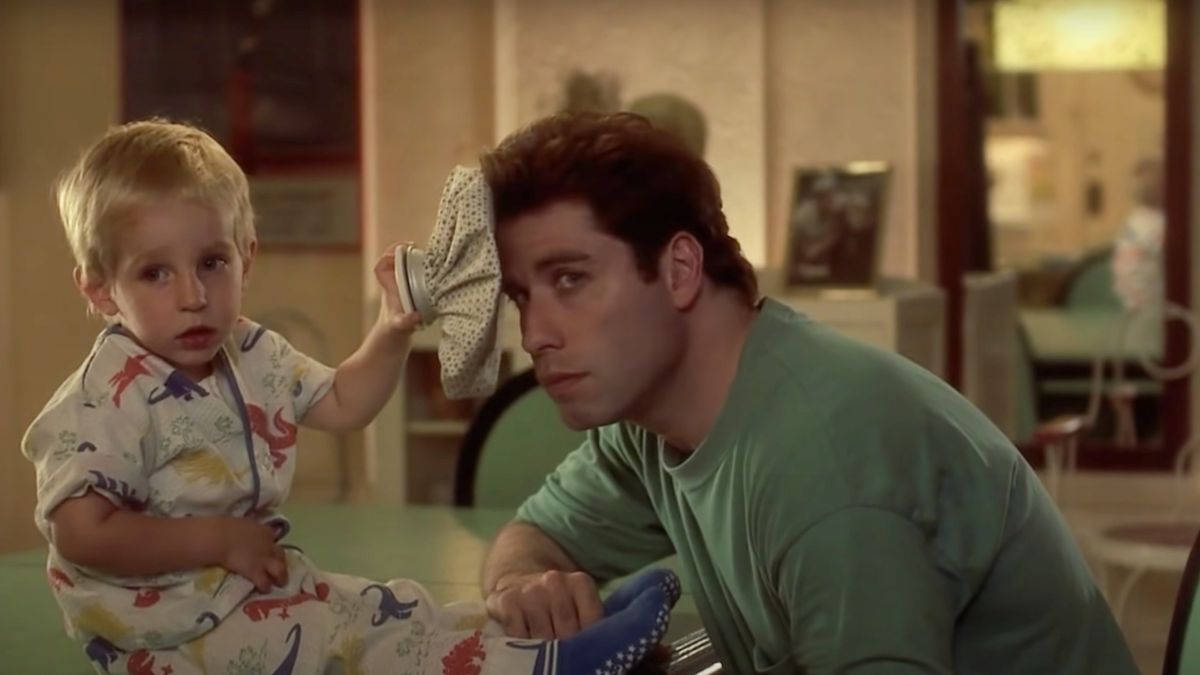
Look Who’s Talking
Everybody seems to remember Look Who’s Talking as the adorable movie where Mikey (Bruce Willis) talks up a storm while his mother Mollie (Kirstie Alley) and her future husband James (John Travolta) fall in love. But what everyone seems to forget is that Mikey’s biological father (George Segal) was a married man who totally abandons his mother, and him, in the process.
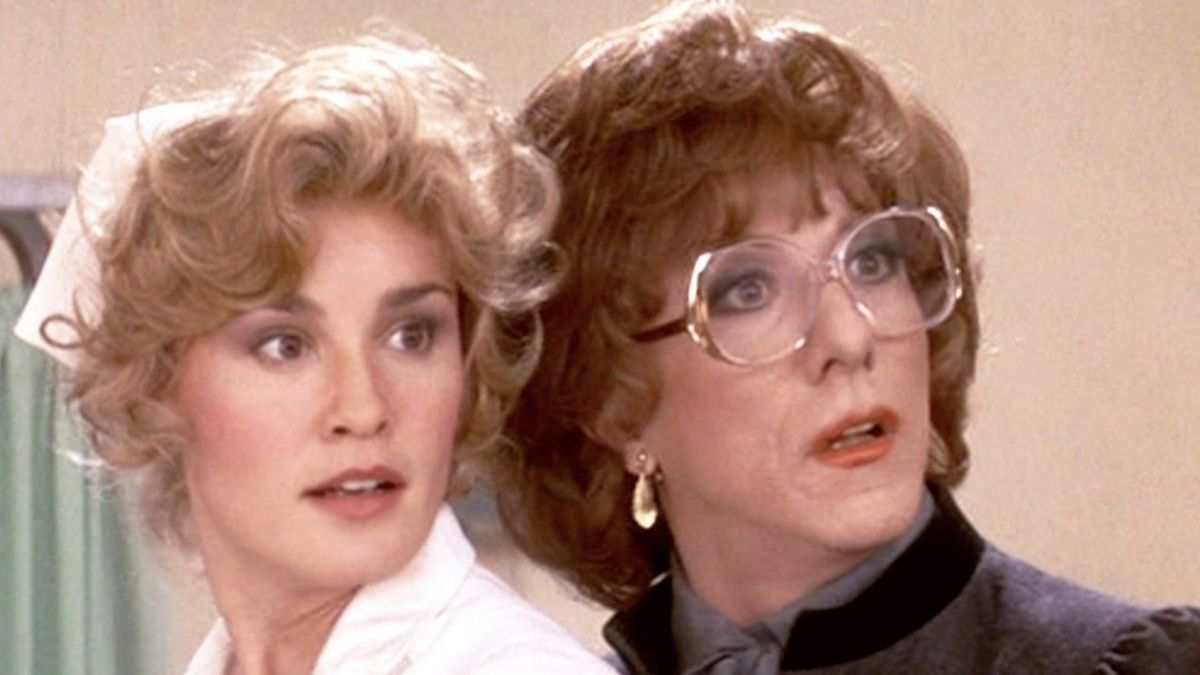
Tootsie
There’s a great amount of heart in Tootsie, but it still doesn’t change the fact that Dustin Hoffman’s central lead is rewarded for masquerading as a woman to seemingly further his career. Misogyny and transphobia are the particular lenses that criticize this Sydney Pollack picture, as there’s no real lesson learned through Michael Dorsey’s (Hoffman) seemingly humorous escapades.
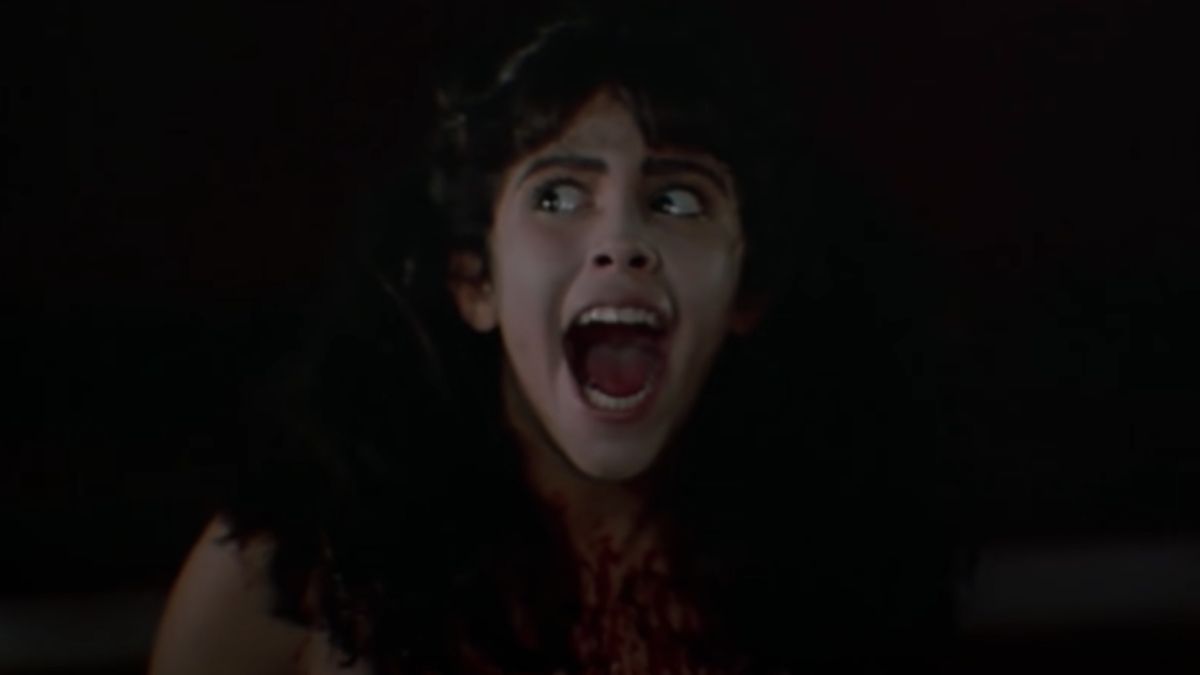
Sleepaway Camp
One of the most landmark twists of ‘80s horror has to be the moment where we learn that Sleepaway Camp’s secret slasher Angela (Felissa Rose) is secretly a transgendered person originally named Peter. That’s not the main problem though, as the 1983 horror classic seems to suggest that the reason Peter has supposedly “snapped” is that they witnessed their father in a homosexual relationship.
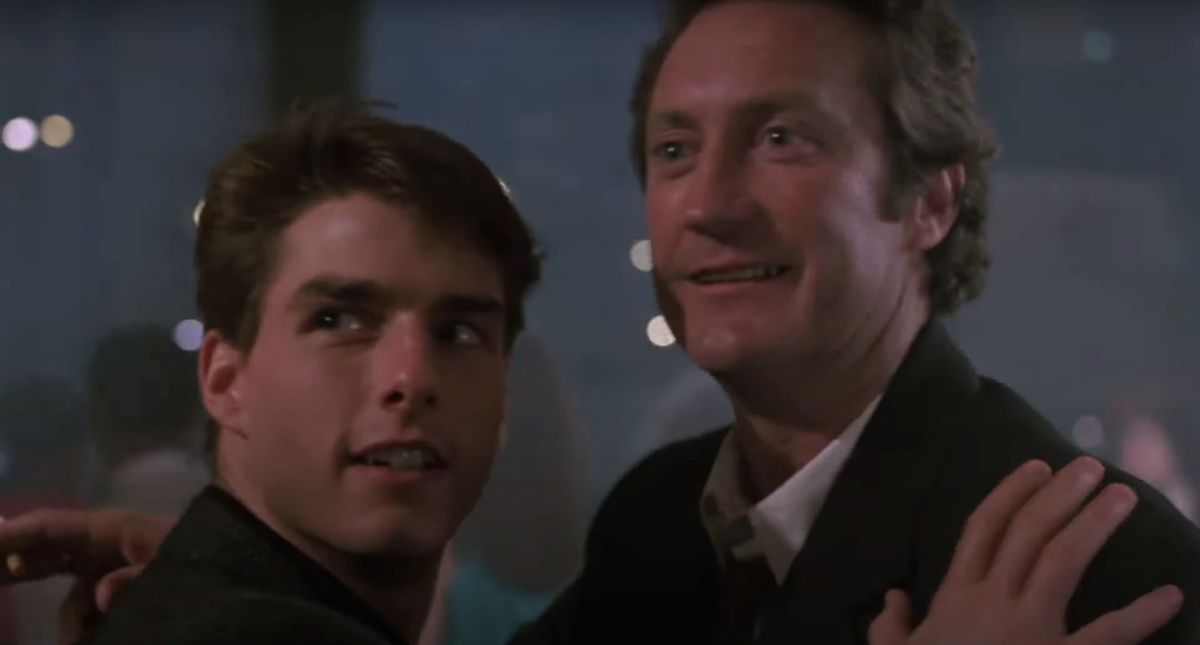
Cocktail
What’s a Tom Cruise dramedy without a suicide, right? If you’re weirded out by that question, it’s ok, as that’s exactly what audiences watching Cocktail in 1988 probably felt when, after a period of declining fortunes, fellow bartender Doug (Bryan Brown) dies by suicide. Not exactly the sort of movie you’d expect to bag a hit single by The Beach Boys.
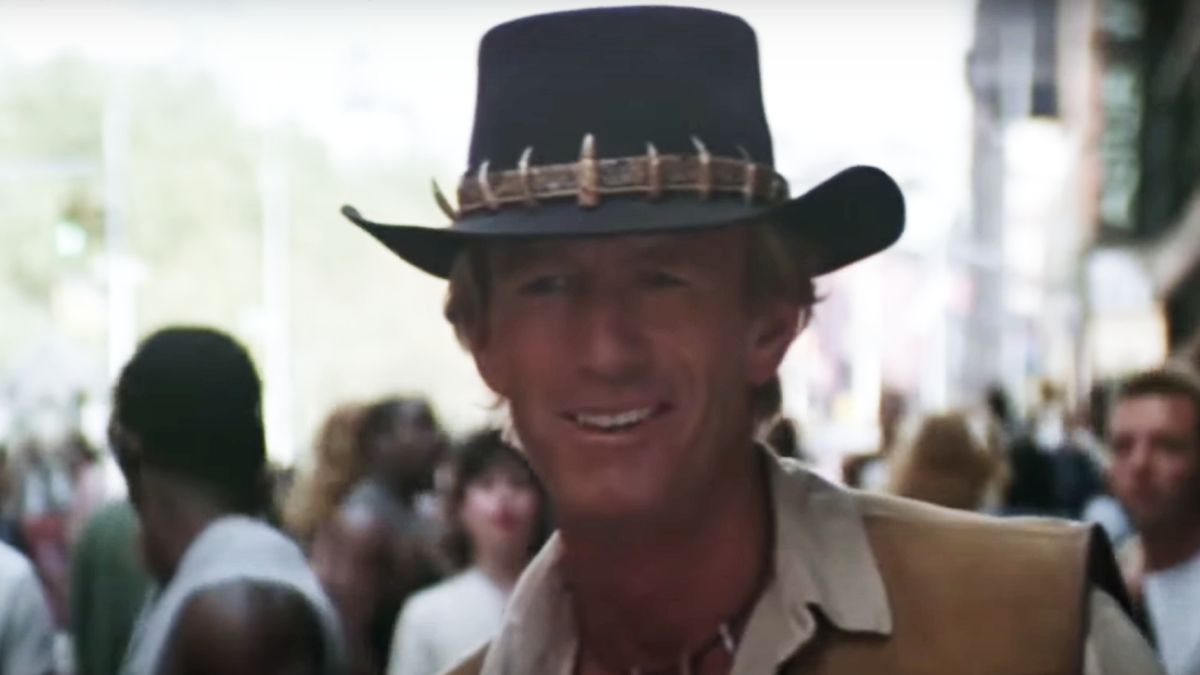
Crocodile Dundee
Paul Hogan’s cult classic Crocodile Dundee has a lot to answer for when it comes to a lot of the content presented in the film. But if you had to choose just one example of why this movie hasn’t aged well, the scene where Mick Dundee outs a transgender woman (Anne Carlisle) to the amusement of a bar packed with patrons just might be the most compelling proof.
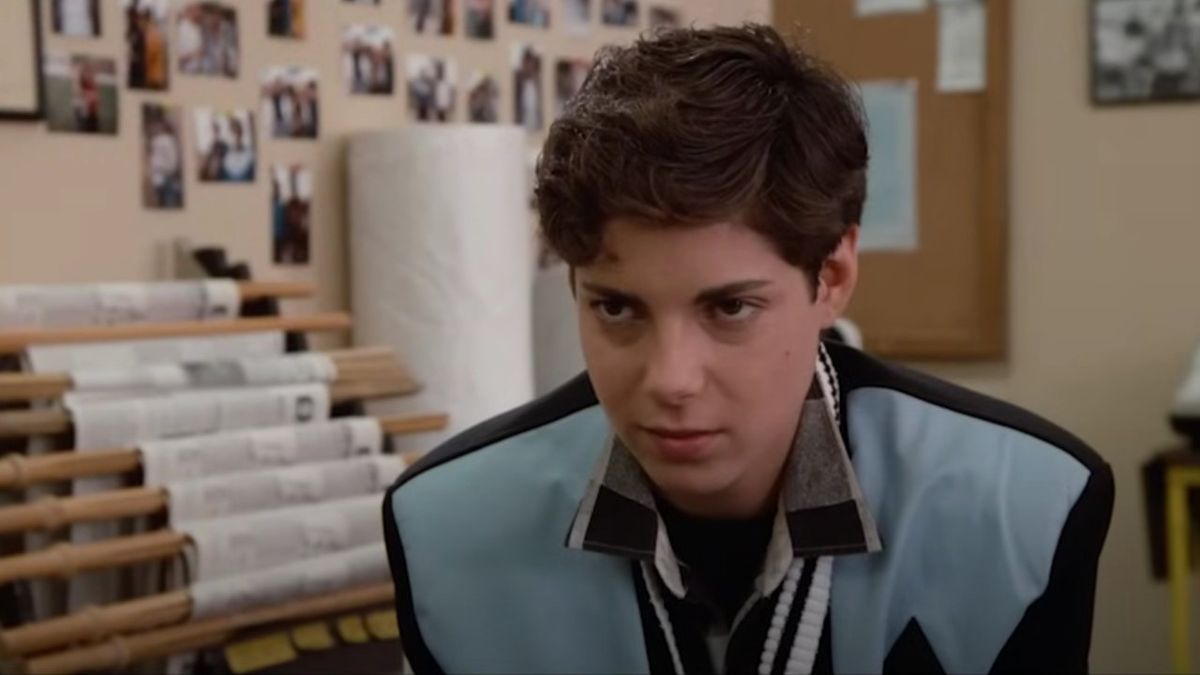
Just One Of The Guys
It’s a toss-up between which piece of Just One Of The Guys is more concerning: the fact that Terri/Terry (Joyce Hyser) had to flash her bare chest to prove she was actually female, or that the whole movie is a gender-swapping version of She’s All That. While the movie does get points with modern audiences for handling its story about sexism with sensitivity, this seemingly exploitative moment sets that message back a bit.
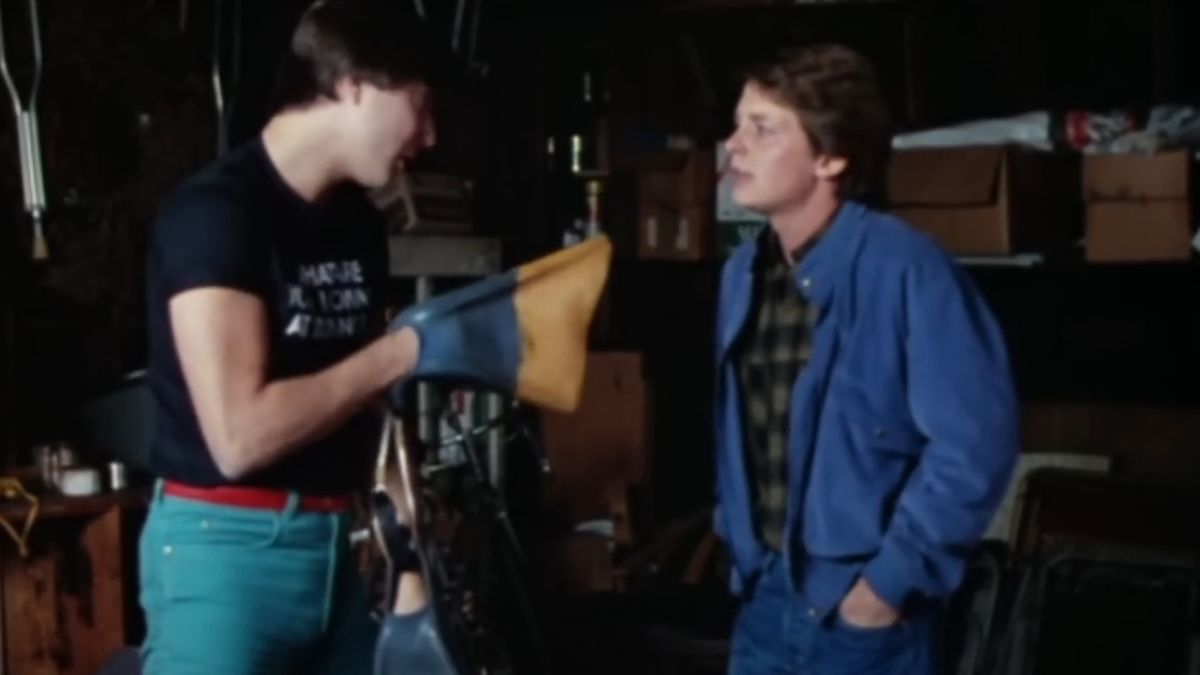
Teen Wolf
If there ever was a scene that proved the ‘80s were “a different time,” the garage-based scene between Teen Wolf’s Scotty (Michael J. Fox) and his best pal Stiles (Jerry Levine) certainly proves that point. Using a homophobic slur in the lead-up to Scotty admitting he’s a werewolf wasn’t bad enough, as Stiles’ preference that his friend might be a potential bloodthirsty horror nightmare hits all the wrong notes.
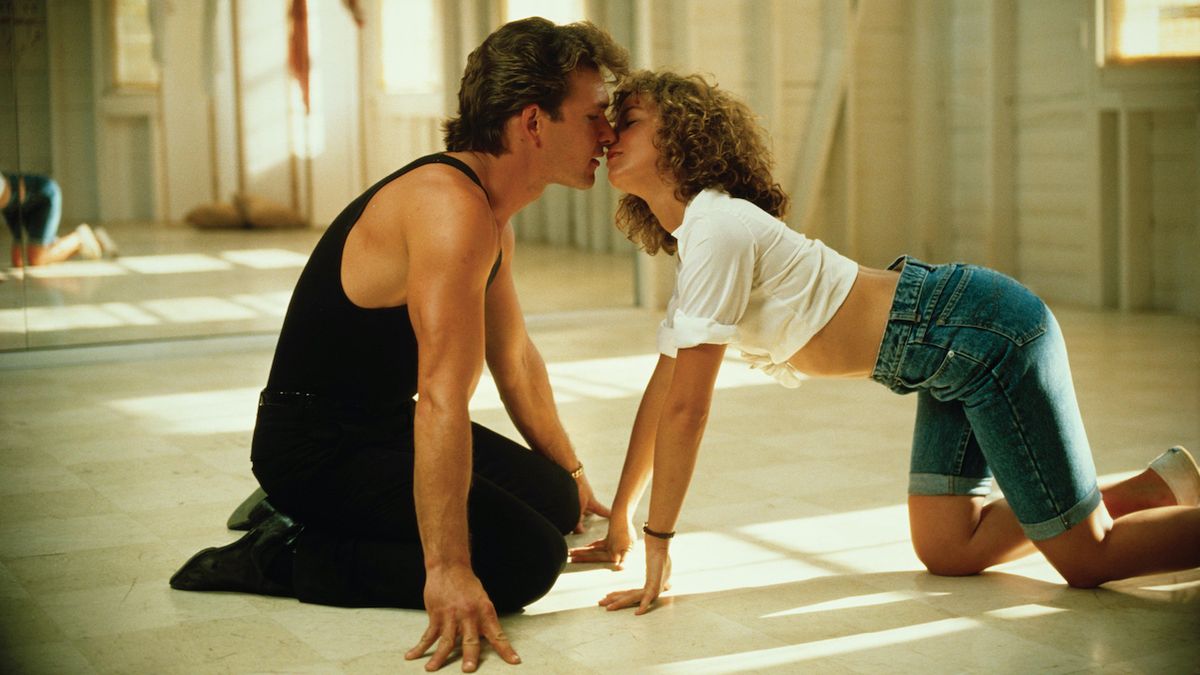
Dirty Dancing
We totally understand that Dirty Dancing is one of the best romantic movies of all time. It’s hard not to get caught up in the ‘50s set love story between Baby (Jennifer Grey) and Johnny (Patrick Swayze). However, considering he’s 24 and she’s 17, it’s amazing that Baby’s father (Jerry Orbach) didn’t make sure the bad boy dance instructor was doing the time of his life in the clink.
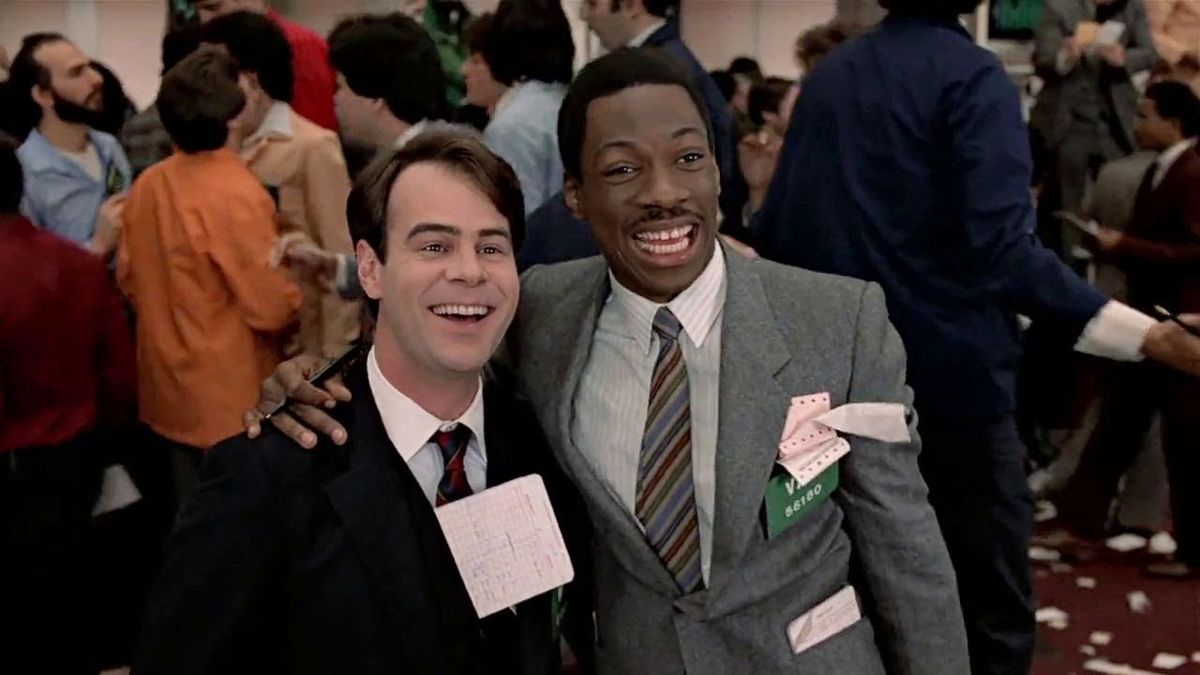
Trading Places
For as much as Trading Places seemed to get right in its satire of wealth inequality and racial politics, the implied violation of one of the film’s villains (Paul Gleeson) by a gorilla, and the Blackface act Dan Akyroyd uses in the final act are quite problematic. Also, the controversy of hiring director John Landis so close to the tragic deaths on the set of his segment for Twilight Zone: The Movie only adds to this picture’s woes over time.
